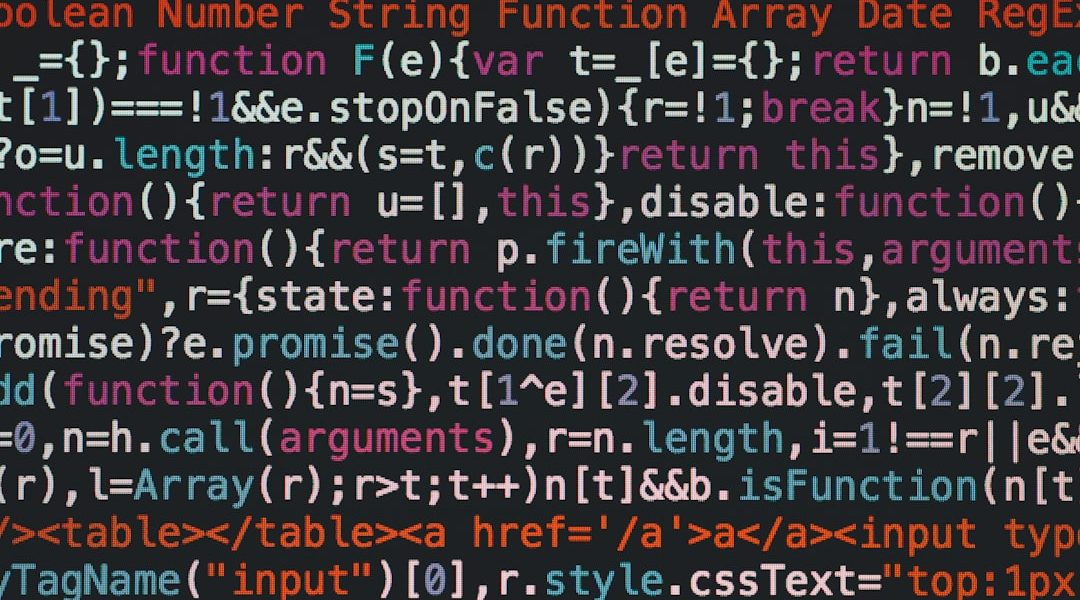Rule 34 is a well-known internet adage that states, “If it exists, there is porn of it. No exceptions.” This rule has become a fundamental principle of internet culture and has had a significant impact on the way people interact and consume content online. The concept of Rule 34 originated from the world of internet memes and has since evolved to encompass a wide range of media and pop culture references. The rule has sparked controversy and debate, as well as influenced the development of online communities and the way people navigate the internet. In this article, we will explore the origins and evolution of Rule 34, its impact on internet culture, the controversy surrounding it, its influence on online communities, and its intersection with legal and ethical boundaries.
Key Takeaways
- Rule 34 is an internet adage that states, “If it exists, there is porn of it.”
- The concept of Rule 34 originated from a webcomic and has evolved to encompass a wide range of content beyond just pornography.
- Rule 34 has had a significant impact on internet culture, influencing the creation of fan art, memes, and online communities.
- The controversy surrounding Rule 34 stems from concerns about the sexualization of non-sexual subjects and the potential harm it may cause.
- Rule 34 has influenced online communities by shaping the way people interact and create content, often blurring the lines between fantasy and reality.
- The intersection of Rule 34 with legal and ethical boundaries raises questions about copyright infringement, consent, and the impact on individuals and society.
- Navigating the internet with Rule 34 in mind requires understanding its prevalence and being mindful of the potential consequences of engaging with Rule 34 content.
The Origins and Evolution of Rule 34
The origins of Rule 34 can be traced back to the early 2000s, when it first emerged as a popular internet meme. The rule was originally associated with the website “Urban Dictionary,” where it was defined as a humorous observation about the abundance of pornographic content on the internet. Over time, Rule 34 expanded beyond its original context and became a widely recognized principle that applies to all forms of media and pop culture references. The rule has been embraced by internet users as a tongue-in-cheek commentary on the seemingly infinite capacity of the internet to produce and disseminate explicit content. As technology has advanced and the internet has become more pervasive in everyday life, Rule 34 has continued to evolve and adapt to new forms of media and cultural phenomena. It has become a ubiquitous presence in online discussions and has influenced the way people engage with and interpret various forms of media.
The evolution of Rule 34 has also been shaped by the proliferation of user-generated content and the rise of social media platforms. With the advent of platforms like Tumblr, Reddit, and Twitter, internet users have been able to easily create and share their own interpretations of Rule 34, further expanding its reach and impact. The rule has become a staple of internet humor and has been referenced in countless memes, videos, and online discussions. As a result, Rule 34 has become deeply ingrained in internet culture and continues to play a significant role in shaping the way people interact with and consume content online.
Understanding the Impact of Rule 34 on Internet Culture
Rule 34 has had a profound impact on internet culture, influencing the way people engage with media and pop culture references. The rule has become a lens through which internet users view and interpret various forms of content, often leading to humorous or provocative reinterpretations. This phenomenon has contributed to the creation of a vibrant and dynamic online community that thrives on creativity, humor, and subversion. Rule 34 has also played a role in shaping the way people navigate the internet, as it has become a widely recognized principle that informs the way people search for and consume content online.
Furthermore, Rule 34 has had a significant impact on the way people perceive and discuss sexuality in the digital age. The rule has sparked conversations about the boundaries of sexual expression and the role of explicit content in online spaces. It has also raised questions about censorship, freedom of expression, and the ethical implications of creating and consuming explicit material. As a result, Rule 34 has become a focal point for discussions about internet culture, identity, and the ways in which technology shapes human behavior.
The Controversy Surrounding Rule 34
| Aspect | Details |
|---|---|
| Origin | Rule 34 originated from a webcomic by Peter Morley-Souter, also known as “Copper”. |
| Definition | Rule 34 states that “if it exists, there is porn of it”. |
| Controversy | There is controversy surrounding Rule 34 due to its explicit nature and potential impact on children and society. |
| Internet Culture | Rule 34 has become a prominent aspect of internet culture, often referenced in memes and discussions. |
| Legal Issues | There have been legal debates and discussions regarding the boundaries of Rule 34 and its implications. |
Despite its widespread popularity, Rule 34 has also sparked controversy and debate within online communities and beyond. The rule’s explicit nature has led to concerns about its impact on children and young people who may encounter inappropriate content while browsing the internet. This has prompted discussions about internet safety, parental controls, and the responsibility of online platforms to regulate explicit material. Additionally, Rule 34 has raised ethical questions about the creation and dissemination of explicit content without the consent of the individuals or entities being depicted.
Furthermore, Rule 34 has been criticized for perpetuating harmful stereotypes and contributing to the objectification of individuals and characters depicted in explicit material. This has led to discussions about representation, diversity, and the ways in which explicit content can reinforce or challenge societal norms. As a result, Rule 34 has become a lightning rod for debates about sexuality, consent, and the ethical implications of creating and consuming explicit material in online spaces.
Rule 34 and its Influence on Online Communities
Rule 34 has had a profound influence on online communities, shaping the way people interact with each other and engage with various forms of media. The rule has become a source of humor, creativity, and subversion within online spaces, leading to the creation of fan art, fan fiction, and other forms of reinterpretation. This has fostered a sense of community among internet users who share an appreciation for Rule 34 and its ability to transform familiar characters and narratives into new and unexpected forms.
Furthermore, Rule 34 has contributed to the development of niche communities centered around specific interests or fandoms. These communities often revolve around the creation and sharing of explicit content that aligns with the principles of Rule 34. While these communities have faced criticism for their explicit nature, they have also provided a space for like-minded individuals to connect, collaborate, and express themselves in ways that may not be possible in offline settings.
Rule 34 and its Intersection with Legal and Ethical Boundaries

The widespread popularity of Rule 34 has raised important legal and ethical questions about the creation and dissemination of explicit material online. The rule’s explicit nature has led to concerns about copyright infringement, as well as questions about the rights of individuals or entities whose likeness is used in explicit content without their consent. This has prompted discussions about intellectual property law, fair use, and the ethical implications of creating derivative works that may be considered offensive or inappropriate.
Furthermore, Rule 34 has intersected with broader debates about internet regulation, censorship, and freedom of expression. The rule’s explicit nature has prompted discussions about the responsibilities of online platforms to moderate content that may be considered harmful or offensive. This has led to debates about the role of government regulation, self-regulation by online platforms, and the rights of individuals to create and consume explicit material in online spaces.
Navigating the Internet with Rule 34 in Mind
As Rule 34 continues to shape internet culture and influence the way people engage with media and pop culture references, it is important for internet users to navigate online spaces with an awareness of its impact. This includes being mindful of the potential for encountering explicit material while browsing the internet, as well as understanding the legal and ethical implications of creating or sharing explicit content online. It also involves being respectful of others’ boundaries and consent when engaging with explicit material in online communities.
Furthermore, navigating the internet with Rule 34 in mind requires critical thinking about the ways in which explicit content can shape perceptions of sexuality, identity, and representation. This involves being mindful of the potential for harmful stereotypes or objectification in explicit material, as well as being open to conversations about consent, diversity, and ethical considerations when creating or consuming explicit content online.
In conclusion, Rule 34 has had a significant impact on internet culture, influencing the way people engage with media and pop culture references, shaping online communities, sparking controversy and debate, and intersecting with legal and ethical boundaries. As internet users continue to navigate online spaces with an awareness of Rule 34’s impact, it is important to consider its implications for internet culture, identity, representation, and ethical considerations in online spaces.
If you’re interested in learning more about cod rule 34, you should check out this article on regitail.com. This website provides valuable information on various rules and regulations related to the cod industry, including rule 34. It’s a great resource for anyone looking to stay informed about the latest developments in the cod fishing industry.
FAQs
What is Rule 34?
Rule 34 is an internet meme that states “If it exists, there is porn of it. No exceptions.” This rule is often applied to various forms of media, including video games, movies, and TV shows.
What is “COD Rule 34”?
“COD Rule 34” specifically refers to the application of Rule 34 to the Call of Duty (COD) video game franchise. This means that there is a significant amount of adult content, including fan art and fan fiction, related to the characters and themes of the COD games.
Is “COD Rule 34” officially endorsed by the Call of Duty franchise?
No, “COD Rule 34” is not officially endorsed by the Call of Duty franchise or its developers. The creation and distribution of adult content related to the COD games is not sanctioned by the official creators of the franchise.
Is “COD Rule 34” appropriate for all audiences?
No, “COD Rule 34” content is not appropriate for all audiences, as it often contains explicit and adult themes. It is important for individuals to be aware of the nature of this content and to consume it responsibly and within legal and ethical boundaries.
Are there any regulations or restrictions regarding “COD Rule 34” content?
As with all forms of adult content, “COD Rule 34” content is subject to various regulations and restrictions, including laws related to obscenity, copyright infringement, and online content distribution. It is important for creators and consumers of this content to be aware of and comply with these regulations.




